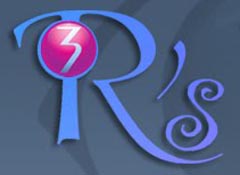Today I was lucky enough to guest post for Florinda over at the 3 R’s Blog.
My post is about something I’m calling “nonfictional fiction,” which includes books like Middlesex by Jeffrey Eugenides, Water for Elephants by Sara Gruen and Her Fearful Symmetry by Audrey Niffeneger.
But that’s all I’ll say – you’ll have to check out the post for more.


Comments on this entry are closed.
Great guest post, Kim! I think you make some valid points for this potentially new genre.
Have you read The Day the Falls Stood Still by Cathy Marie Buchanan? This seems like it would fit into this genre. (Or maybe it is decidedly historical fiction? Or maybe I’m not seeing the difference?)
I’m in the middle of reading Her Fearful Symmetry right now, and can definitely see what you mean about the cemetery being a character.
Melissa: Thank you! I haven’t read that book, I’ll look for it.
I thought about historical fiction as being what I liked, but I think that genre tends to include stuff like The Other Boleyn Girl which takes history alters it significantly in order to tell a story. I wouldn’t read that book and think I knew a lot about that time, but I did read Middlesex and felt like I knew a lot about the history of Detroit.
But there could be historical fiction that would fit into my made up genre, I just don’t read enough to think of an example off the top of my head.
Kim, great post. I too am a nonfictional fiction lover. Love that genre (even if you did make it up)!
I’m reading Middlesex right now, and Water for Elephants was wonderful.
Lynne: Thanks! I hope you like Middlesex — I thought it was a very good book for the most part.
That’s a really interesting post and I think you make good points about the distinction within historical fiction (Phillippa Gregory is just making things up!).
I have questions! What do you think about books that use more fictional structures (say things like multiple pov, stream of conciousness etc) to tell a highly researched story. I’m thinking of books like ‘Wolf Hall’, would they count as non-fictional fiction? Can stories that switch between time periods still be non-fictional fiction if both storylines exhibit research? How far is a stretch too far for you to knock a book out of the nono-fictional fiction catagory? Comm Igullden’s books are highly researched, but he does tend to cut battles out and makes changes for the continuity of the story.
Jodie: Hmmm… those are all good questions, and I haven’t thought about it that much. Off the top of my head, I’d say the more accurate the book, the more likely it is to be nonfictional fiction. I don’t think the story structure would matter, as long as it was pretty accurate to history and context.
I think the Comm Igullden books would count, but I’m not sure how much they cut out. But if the rest is accurate, then maybe?